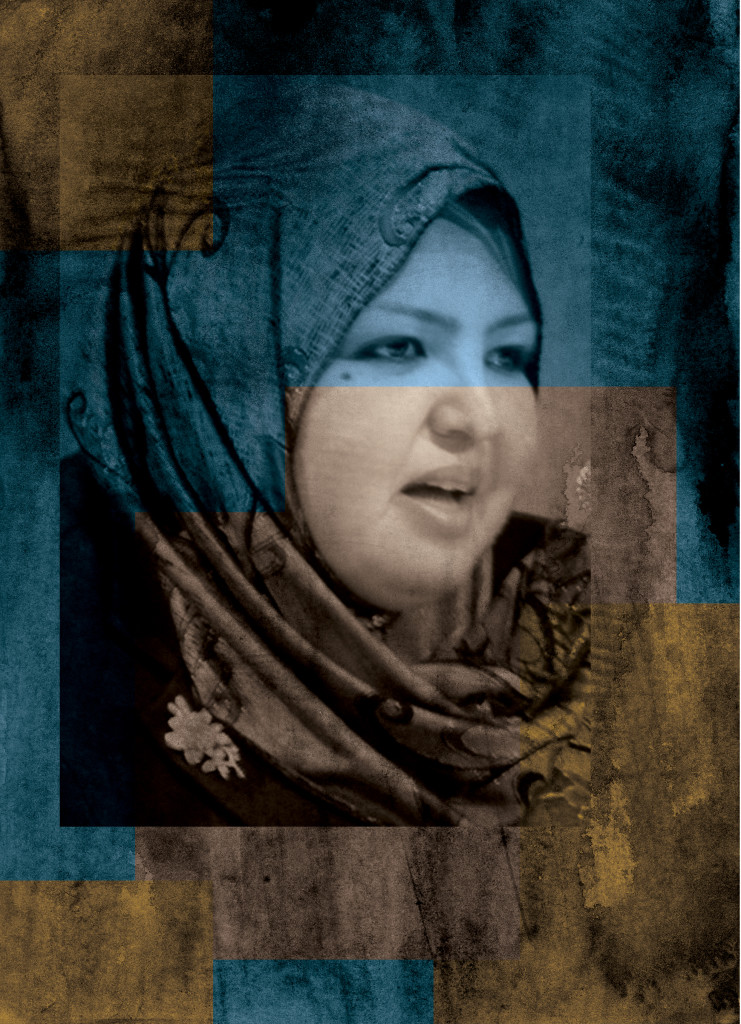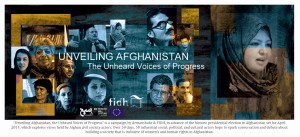Seyyedeh Mojgan Mostafavi is the Deputy Minister for Women’s Affairs, and a Professor in the School of Journalism at Kabul University. She obtained Master’s and Bachelor’s degrees in Communications in Iran, after having been forced to leave her studies in English Literature at Kabul University because of the war. She has recently re-commenced her Ph.D. studies and is active in a number of cultural and research projects.
Have your rights ever been violated?
I grew up in a well-educated family that attaches great importance to human rights. I have been fortunate to never face any problems concerning my rights, either in my own family or from my husband’s family.
What are some important achievements in Afghanistan today?
In the last century in Afghanistan, women have lacked adequate legal frameworks supporting their rights. The past 12 years have been a great improvement on this front. The Elimination of Violence Against Women Law is a positive development that can be enforced in the courts. The Family Law, which took three years to develop, is a comprehensive law containing hundreds of provisions and regulations concerning women’s access to justice.
What gives you hope for the future?
The most important thing is the support growing within families for women’s rights. Previously, the only thing that girls were taught to do was look after the traditional tasks of the household. However, the growth of civil society institutions and women’s involvement in them has led to a shift in attitudes. Now, families are encouraging their daughters to learn other skills as well. You will hardly find a family that does not want their daughter to study.
What do you fear most today?
The threat of returning to war haunts me. Women have always been the first victims of wars in Afghanistan. The slightest change for the worse will weigh heavily on them. For example, if a woman’s husband or son is killed in war, she shoulders the burden of homelessness and misery. We need sustainable peace in Afghanistan. Without it, women will always be the victims of violence.
What are the biggest challenges facing Afghanistan?
The interference of neighbouring countries is a major political challenge for Afghanistan: it gives rise to endless controversies which prevent our development and progress.
With respect to the economy, we have a serious shortage of specialists and know-how to operate, for example, our mines. We have plenty of underground resources, which are not being used optimally because of lack of proper planning and use of available human power.
Finally, the lack of national unity in Afghanistan has long been a major weakness, which others have been able to exploit to their advantage.
Is it possible that schools could once again be closed to girls and women excluded from society?
I hope this will never happen again. The people of Afghanistan have undergone great changes in the last 12 years. I believe we have reached a level of social maturity where school for girls is a matter of priority for Afghan families.
Which factors hinder women’s participation in social, economic, political and cultural spheres?
Decades of war, violence, and insecurity have created serious problems of illiteracy. Unfortunately, for the most part, it is the women in society who are illiterate. We need a national campaign to combat illiteracy amongst women.
More broadly in our culture, traditional attitudes battle against human rights. These are problems which concern the whole society. Both boys and girls, for example, are victims of forced marriage.
In general, we need to see a higher level of participation by women in society. Women are playing a more active role in the cities, but in the rural areas, their participation is virtually non-existent.
What changes should be made to advance women’s rights in Afghanistan?
Access to justice for women is important. Implementing the law – the Constitution, the Civil Code, Elimination of Violence Against Women Law – and passing the Family Law can protect women’s rights. We need to thoroughly address the issue of violence against women. Women should also be present in leadership and decision-making positions.
Economic empowerment of women is yet another demand. Women constitute 40% of the active labour force. They have the right to economic empowerment. They need more control with respect to their work: to receive their salary, market their work, and take part in trading in domestic and foreign markets directly rather than through male intermediaries.
Which sources and institutions can women rely on to promote their rights and demands?
Amongst the governmental institutions, women can depend on the Ministry of Women’s Affairs as a policy-making and executive body. Having more facilities and a higher budget would allow us to better serve women. The ulema [Muslim legal scholars] and the media can also play an effective role in defending women.
What have you done, personally and professionally, to eliminate discrimination against women in Afghanistan?
I have been working for women’s rights to the best of my ability for over 20 years. I have always considered myself to be serving the cause of women.
Do you have a message to share with the world?
My greatest wish is for a world in which no woman suffers from illiteracy and violence.
“Unveiling Afghanistan, the Unheard Voices of Progress” is a campaign by Armanshahrand FIDH, which explores views held by Afghan civil society actors. Over 50 days, 50 influential social, political, and cultural actors hope to spark conversation and debate about building a society that is inclusive of women’s and human rights in Afghanistan.
Follow 50 interviews drawn from the “Unveiling Afghanistan campaign” daily on the Huffington Post.
Follow Unveiling Afghanistan on FIDH Twitter: www.twitter.com/fidh_en



